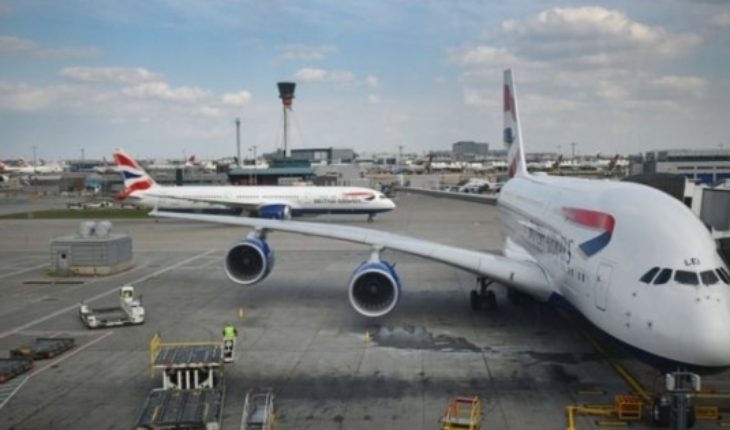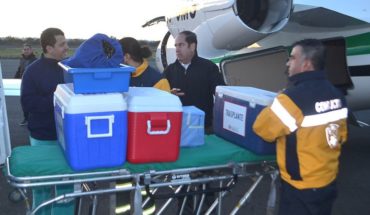Fuel value is one of the main operating costs that airlines have.
It is also one of the most varied expenses, not only because the price of oil fluctuates, but also because it is different in each country (and there are even variations within countries).
So it’s no surprise that many airlines are looking for ways to reduce that spending.
But one of the practices commonly used for this purpose is being denounced for its harmful environmental effect.
It’s about the “Tankering”, the practice of hauling extra fuel on planes so that you don’t have to load at destinations where fares are higher.
This is a saving for the airline, but it has a cost for the planet: it makes the plane heavier and therefore consumes more fuel, releasing more carbon dioxide.
What is the most polluting means of transport?
3 innovations for aircraft to pollute less
According to BBC Environment Correspondent Justin Rowlatt, tankering is widely used in the aviation industry.
And, in Europe alone, the polluting emissions generated by the practice are equivalent to those of a city with a population of 100,000.
Loading fuel is more expensive at some airports than at others. In a report published last June, the European Organisation for the Safety of Air Navigation (Eurocontrol) estimated that European airlines saved about US$293 million a year through tankering.
The environmental cost, according to the agency, was 901,000 metric tons of carbon dioxide.
The BBC’s research
Research conducted by the BBC’s television programme Panorama revealed that some airlines that have committed to improving their environmental practices also use tankering.
International Airlines Group (IAG), the owner of British Airways (BA), has said it is seeking to be the world leader in sustainability.
IAG recently showed its environmental credentials committing to zero net emissions by 2050.
BA even boasts of using a lighter paper to make its in-flight magazine, to reduce the weight of its aircraft.
However, internal documents obtained by the Panorama programme revealed that the British airline transported up to six tonnes of extra fuel to avoid paying higher costs in some destinations.
The company’s sources acknowledged to the BBC that the airline, like many rival companies operating short-haul routes in Europe, uses software that calculates whether it is economically beneficial to use tankering.
BA acknowledged that it uses tankering but said it is one of the least polluted airlines due to this practice. They also emphasized that the practice is very common in industry, especially in Europe where “there are considerable price differences (to load fuel) between airports (from different countries)”.
According to Eurocontrol, one in five European airlines uses tankering.
The BBC found evidence that even the popular EasyJet low-cost line uses this practice.
And BA claims that the extra emissions it produces from tankering account for only 2% of the European total.
However, Panorama’s research found that BA produced an additional 18,000 metric tons of carbon dioxide in 2018 through this practice.
Why do airlines make flights last longer on purpose?
Which are the top 10 airlines in the world (and where latin American airlines are located)
BA’s response
In response to the report, the British airline announced that it will review its fuel economy policies.
Speaking to investors on Friday, IAG CHIEF Willie Walsh said the airline wanted to make sure it wasn’t “encouraging wrong behavior.”
“Clearly financial savings would incentivize us to do tankering, but this may not be the right thing to do or the right incentive,” he said.
“So we want to make sure that our incentives are aligned with the right activities, to ensure financial sustainability, but also environmental sustainability,” he said.
Greenpeace’s John Sauven distrusts airlines and demands more state intervention. However, critics of the aeronautical industry, such as the environmental organization Greenpeace, say that the widespread use of tankering undermines aviation’s promises that it is committed to reducing its carbon emissions.
John Sauven, CEO of Greenpeace uk, told the BBC that tankering was a “classic example of a company putting profits before the planet.”
For Sauven, the announcement that BA will review its practices in response to Panorama’s research shows how that industry has treated climate change “as a public relations problem.”
“That’s why we need government-imposed reduction targets (of carbon dioxide) to ensure airlines take responsibility for the damage they cause their emissions,” he said.
translated from Spanish: What is “tankering,” the practical pollutant that some airlines use to save money
November 13, 2019 |





